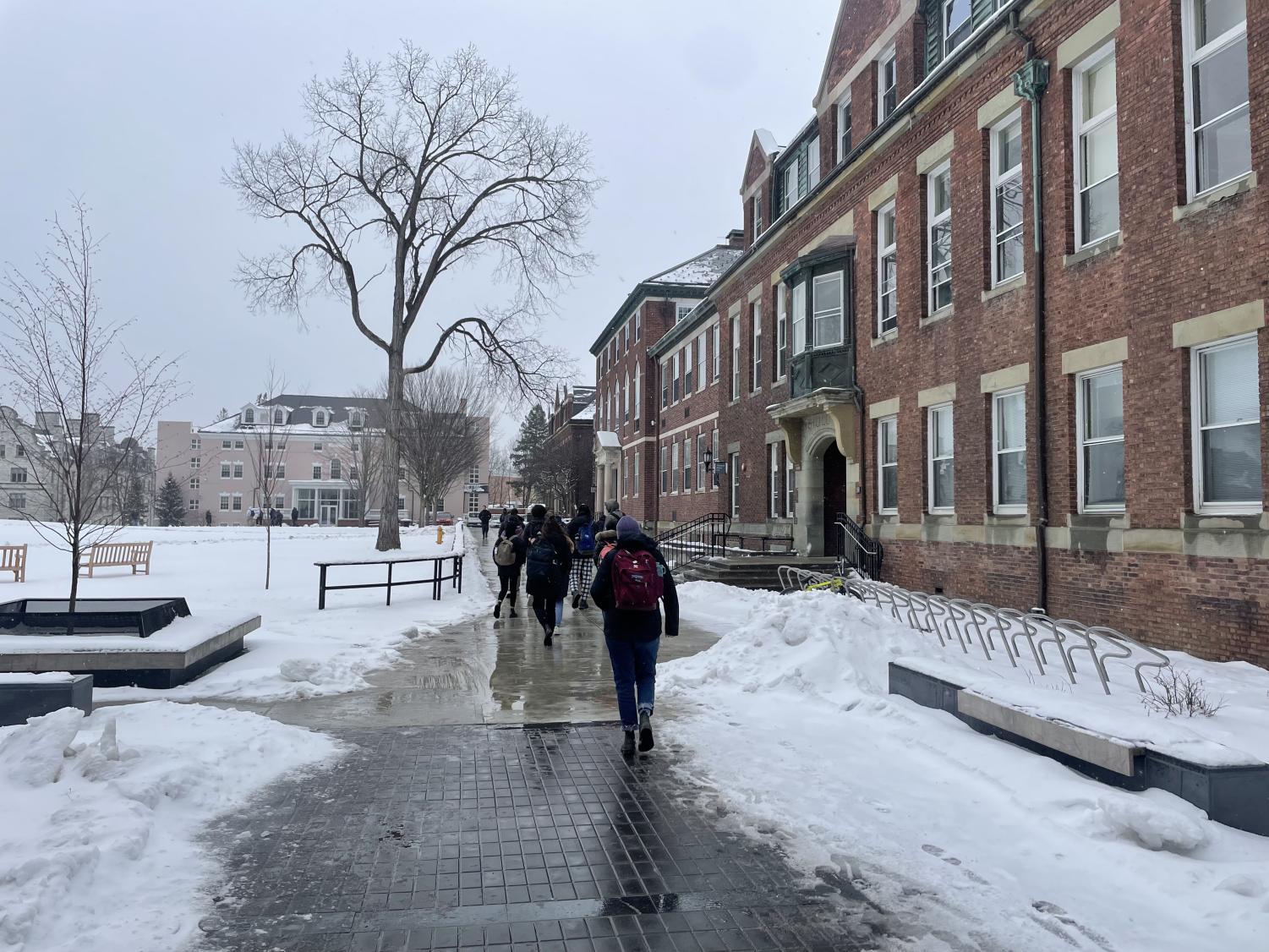Seven Williams students among top Putnam finishers, one in top 200
March 1, 2023

Seven students at the College placed in the top 500 undergraduates of the 3,415 who competed in the annual William Lowell Putnam Mathematical Competition on Dec. 3, 2022.
The Putnam Competition began in 1938 and is open to enrolled undergraduates across the United States and Canada. Since its founding, only a few students have earned all possible points of the exam — which had a median score of one point this year, according to the Feb. 13 announcement of the exam’s results.
“I didn’t really prepare for it … but I heard about it maybe my freshman year,” said Justin Cheigh ’24, who earned a top-500 finish on the 2022 exam. “I never really did math competitions when I was growing up — or honestly besides this — but I had heard it’s the hardest one, so I was like, ‘I might as well try it.’”
The six-hour exam is divided into two parts: Students sit for six questions in the three-hour morning session and six more questions in the three-hour afternoon session. Though the competition is known to be difficult, it is based entirely on concepts from undergraduate math courses, including “concepts from linear algebra, modern algebra, analysis, and number theory,” according to the Mathematical Association of America’s website.
Whereas Cheigh focused all his time on just one question per section — and began a second, if he had extra time — Jonathan Geller ’24 used a different approach.
This was the third time that Geller, who scored in the top 200 this year, sat for the exam. Last year, he spent around three hours per problem, but this time, Geller aimed to complete multiple problems as quickly as possible — if he thought he knew how to do them properly — before beginning others.
“I tried to get to a couple in each round,” he said. “Three hours feels like a really long time to do maybe two or three math problems. But as it turns out, you feel rushed pretty much the whole time.”
Cheigh gained experience with Putnam problems by watching YouTube videos, and Geller attended math puzzle nights at the College led by Visiting Assistant Professor of Mathematics Daniel Condon. Both Cheigh and Geller said that becoming familiar with ways to frame problems was the most helpful part of their Putnam preparation.
“There’s always some sort of clever trick that is often very hard to come up with but is at least something you could, in theory, figure out for yourself in three hours,” Geller said. “You don’t have to memorize a theory or proof that you might have seen earlier.”
Condon, who gained familiarity with Putnam-style math as an undergraduate at Georgia Tech, said that this year, they have organized math puzzle nights at the math department’s request.
Before each meeting, Condon creates a sheet of practice questions that range in difficulty from more basic calculations to problems that appeared on past Putnam Competitions. “It’s really a mix,” they said. “It’s not necessarily all meant to be super challenging.”
In addition to attending math puzzle nights, students at the College who are interested in the Putnam Competition have also honed their skills through Professor of Mathematics Steven Miller’s course “The Little Questions.”
Miller uses the Putnam Competition as a springboard to discuss good mathematics in this senior seminar, which he teaches every few years. Some students take the class because they are interested in the competition, but others enroll just to engage in problem-solving.
As students practice Putnam-esque problems, Miller said they become better at identifying patterns within different questions and learning how to approach them.
“Whenever you’re doing these problems, you have an advantage in that you know there’s going to be a good way to look at it,” he said. “It may take a while to find it. You may not find it until you see the solution key. But there’s a good way — or several good ways — to look at it, where all of a sudden you see the beauty of mathematics.”







